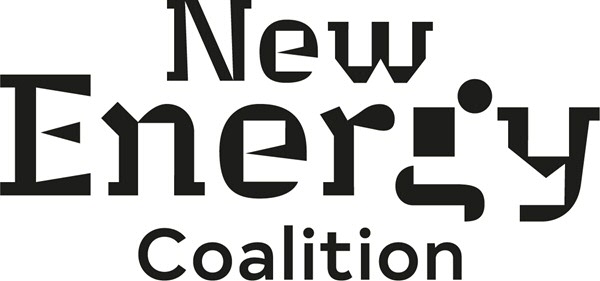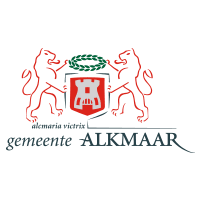InVesta Is Going Full Steam Ahead
It is unavoidable: before 2050, the Dutch government aims to make the energy consumption in our country fully sustainable and reduce the CO2 emission to zero. Reaching this ambitious goal requires new, large-scale developments in the field of sustainable gas. InVesta in Alkmaar will play a significant role in this process the coming years, according to director Peter Simões.
InVesta (Institute for Valorisation and Expertise in Thermochemistry Alkmaar) helps organisations and companies that conduct practical research into innovative technologies that are not yet ready for the market, using demonstration systems. Initially, this solely concerned the pretreatment and gasification of biomass, but the knowledge centre will be expanding its scope, Simões says. "We want to focus more on sustainable gases in general and all sorts of products arising from gasification technology. So, we will also be facilitating hydrogen projects and conduct research into biofuel for vehicles, vessels and aeroplanes, bio-based raw materials for the chemical industry, or other ideas still in the early stages of development. Our goal is to further expand the expertise that exists in this field in the region and to let education and knowledge institutions join. We invite anyone with a good idea to come to us for research."
InVesta (Institute for Valorisation and Expertise in Thermochemistry Alkmaar) helps organisations and companies that conduct practical research into innovative technologies that are not yet ready for the market, using demonstration systems. Initially, this solely concerned the pretreatment and gasification of biomass, but the knowledge centre will be expanding its scope, Simões says. "We want to focus more on sustainable gases in general and all sorts of products arising from gasification technology. So, we will also be facilitating hydrogen projects and conduct research into biofuel for vehicles, vessels and aeroplanes, bio-based raw materials for the chemical industry, or other ideas still in the early stages of development. Our goal is to further expand the expertise that exists in this field in the region and to let education and knowledge institutions join. We invite anyone with a good idea to come to us for research."
New Development Energy Innovation Park
InVesta was founded in 2015 by Taqa, ECN/TNO, New Energy Coalition, Hogeschool Inholland and Development company NHN and receives financial support from the municipality of Alkmaar, province of Noord-Holland and the ministry of Economic Affairs and Climate Policy. The knowledge centre supports researchers and entrepreneurs with knowledge, facilities, networking and finding financing. To better facilitate start-ups and companies, a test centre will be built on the Energy Innovation Park in the Boekelermeer in Alkmaar. It will be located next to the Taqa grounds. A perfect location, Simões thinks. "Researchers and entrepreneurs will have access to office and conference spaces, but also a laboratory and technical facilities. The grounds will feature a complete infrastructure with pipelines for a hydrogen network, CO2 network, heat grid, etc. Researchers and entrepreneurs will have the opportunity to test and demonstrate all their ideas. Moreover, it is to be a kind of campus, where students of educational institutes and universities can assist in research, conduct their own research and build systems. The design for this centre is currently being developed. The goal is to have completed construction in approximately two years."
Sustainable Gases Essential for Paris Agreement
That InVesta focuses on green gas might sound strange at a time that the Netherlands is looking for ways to function without natural gas. Moreover, the use of biomass to generate sustainable energy is currently being criticised in the media. Simões would like to add some nuance to this discussion. "The goals from the Paris Agreement will never be achieved with wind and solar power alone. Sustainable electricity only covers a 'mere' 20% of our energy needs. By far the greatest energy demand comes from our industry, which needs energy for high temperature processes as well as road, water and air transport. For these sectors, sustainable electricity alone is insufficient. It is estimated that, by 2050, sustainable energy can provide half the required amount of energy at most. The other half – and possibly more – will have to be generated elsewhere. For this reason, you need sustainable gases, for instance produced from biomass and green hydrogen from windmills at sea. I'm convinced that we will have to utilise all sustainable energy sources to achieve the government's objectives."
Biomass from Seaweed and Roadside Grass
Simões emphasises that studies demonstrate biomass can provide in 30% of the energy consumption in a good, sustainable way. "The emphasis lies on sustainable. Not all biomass is the same. Biomass will particularly be used for users who are unable to fulfil their needs through other sustainable sources of energy, such as wind, solar and geothermal energy. Gasification of biomass plays a crucial role in this. Biomass is converted into molecules. These molecules are the building blocks for all kinds of energy products such as sustainable gas, biofuel and bio-based raw materials for the industry. Biomass gasification simply means that sustainable molecules are produced through the heating of materials that are originally organic. This could also include vegetables, or fruit and garden waste, oil and grease from food, manure or crops such as rapeseed and sugar cane. We conduct a great deal of research into which types of biomass residues we might be able to use in the future. Think of seaweed, sewage sludge, roadside grass and other materials that haven't previously been applied for energy supply. The goal of our programme is to accelerate innovative, technological developments that enable the large-scale commercial production of sustainable gas, biofuel and sustainable chemicals. These technologies are also very interesting export products."
Interesting Pilots
In addition to research into biomass and other sustainable gases, InVesta will also offer space for research and demonstration projects concerning the processing of waste flows, particularly synthetic materials, Simões explains. "We want companies and the government to be able to find us and that research processes are linked to us. There are plenty of interesting pilots, but there is still a lot of experience to be gained before these can be upscaled. InVesta is the perfect place to reach that goal. We are going full steam ahead."
Address
Diamantweg 38
1812 RC Alkmaar
The Netherlands
Contact
Peter Simões
Directeur InVesta
+31 (0)6 270 33 412
info@investa.org










